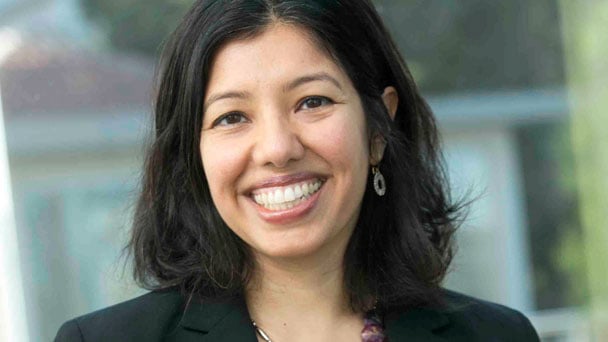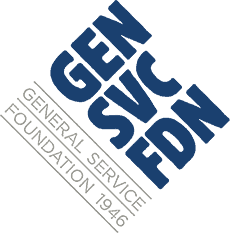
Dimple Abichandani joined GSF as executive director in August, 2015. She has worked for the past two decades as a funder, advocate and educator, most recently as Executive Director of the Thelton E. Henderson Center for Social Justice at UC Berkeley School of Law.
Why were you interested in leading GSF?
My interest in joining the team was largely motivated by deep respect and admiration—I’ve long been impressed with GSF’s people, its approach and its impact. I feel a strong alignment between GSF’s values of justice, experimentation, accountability and the values that have been important to me in my social justice work.
My decision to return to the philanthropic sector was also motivated by this unique moment of possibility in social justice fields and in philanthropy. For years, funders have been investing in organizations with the hopes of creating people-power and structural change. Today we have people mobilized, people taking to the streets, taking to social media, engaging in the political space, in the media space, in their living rooms. What are the lessons for funders about the capacities that bring about social change? And what is role of funders in ensuring that movement energy translates into systemic change? How can we reimagine philanthropy as a vehicle for racial justice? What bold things are possible today that were not possible a few years ago? I know the board and staff at GSF are asking these questions too.
How has your career in law shaped how you think about your work as a funder?
I believe social justice and social change require leadership from impacted communities. This insight was shaped in part by my experience as a public interest lawyer. I’ve seen first-hand how the efforts of public interest lawyers can fall short of increasing justice, when those efforts are not connected to the goals of impacted communities and connected to strategies that build community power and voice. At Berkeley Law, I experimented with rethinking what kinds of social justice lawyering skills and mindsets are needed, and created a Social Justice Innovation Lab in which law students engaged in long term social justice problem solving while building collaboration, creativity, and empathy. These are the same skills we need as funders. As funders we too often get attached to our own articulation of the problem—and that can result in “siloed” approaches that don’t resonate with lived experiences in the field.
GSF has worked with many grantees, funders and other colleagues for a long time. Should they be expecting big changes?
I experienced first hand how the GSF staff are allies and champions for their grantees when I served on the boards of two grantees: Third Wave Foundation and Forward Together. I want to honor and build on characteristics that make GSF special as well as bringing my own perspective. It’s important to me to maintain the balance of being steadfast partners with grantees while also adapting to emerging field needs. Grantees and other colleagues have told us they’d like to see GSF communicate more publicly, so I’ll look for ways to use our voice as another resource supporting social justice work. And I expect to invest staff time and capacity in understanding how our impact can grow by increasing alignment with like-minded funders. Foundations are always asking nonprofit groups how they collaborate and with whom. We need to hold our own feet to the fire and bring a combined strength into this work.
How do you think about your role at GSF?
My work has cut across sectors (law, philanthropy, academia) and substantive issues that are relevant to GSF (immigrants rights, civil and human rights, women’s rights and reproductive justice). I know I will draw on my experiences and relationships in this position but I don’t look at my role as being an expert. Rather, I think I will be more effective if I listen deeply, bring curiosity and a spirit of connection, and draw on the areas where I do have knowledge to ask useful questions. I look forward to contributing and learning and experimenting with GSF and all our partners.
